China military parade commemorates WW2 victory
- 35 minutes ago
- China
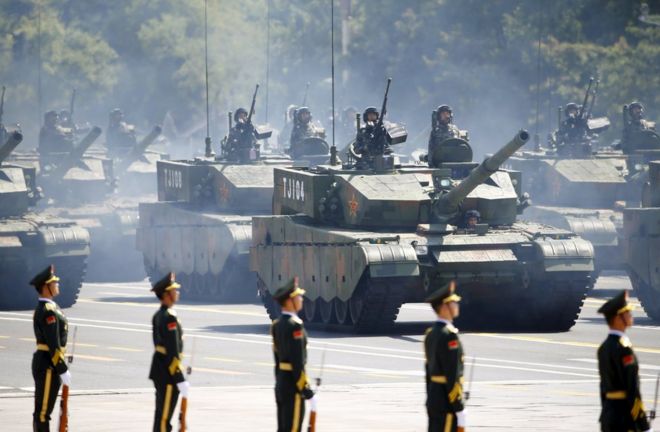 Reuters
Reuters
China has held a lavish parade in Beijing to mark the defeat of Japan in World War Two, showcasing its military might on an unprecedented scale.
President Xi Jinping in his opening speech paid tribute to "the Chinese people who unwaveringly fought hard and defeated aggression" from Japan.
He also said the People's Liberation Army would be reduced by 300,000 personnel, but gave no timeframe.
China's growing military power is being keenly watched amid regional tensions.
China has several territorial disputes with neighbours in the South China Sea, as well as with Japan in the East China Sea.
Ahead of the parade, the US said five Chinese ships had been spotted in the Bering Sea off Alaska for the first time.

 Reuters
Reuters- BBC China Editor Carrie Gracie tweets from the parade
- Just what is China trying to prove?- An image of China that shuns creativity in favour of uniformity and obedience
- Preparing for a parade - Trained monkeys and banned pigeons were part of the prep
- The military wares China wants to boast about - Military analyst Alexander Neill gives his views

More than 30 foreign government officials and heads of state including Russia's President Vladimir Putin and UN Secretary General Ban Ki-moon attended the event,
But many Western leaders and Japan's Prime Minister Shinzo Abe have stayed away.
Some 12,000 troops and 200 aircraft, as well as tanks and missiles, were on display in Tiananmen Square, including the anti-ship "carrier killer" missile Dongfeng-21D.
More than 80% of the machinery on display was being shown to the general public for the first time, according to state media.
Mr Xi, also the commander of the armed forces, was centre stage at the parade's proceedings.
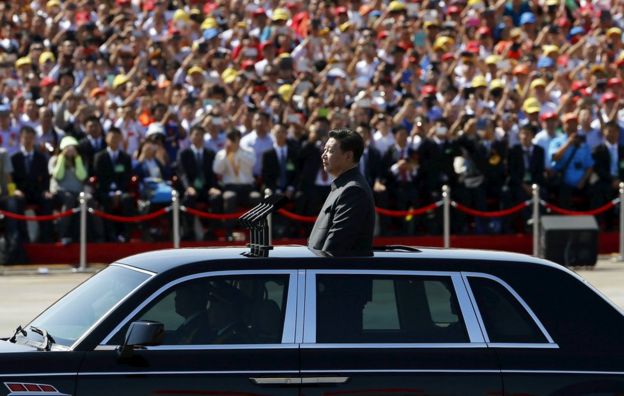 Reuters
Reuters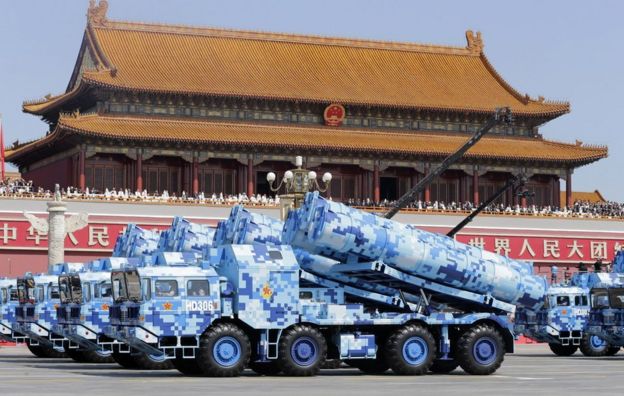 EPA
EPA'China will not seek expansion'
Mr Xi made the troop reduction announcement in a speech where he reassured the global community that "China will remain committed to peaceful development".
"No matter how strong it becomes, China will never seek hegemony or expansion. It will never inflict its past suffering on any nation," he said.
BBC China Editor Carrie Gracie, who was at the parade, says the army cuts will not mean a weaker China.
China is also upgrading its naval and air forces, she says, so does not need as many boots on the ground to project its power around the world.
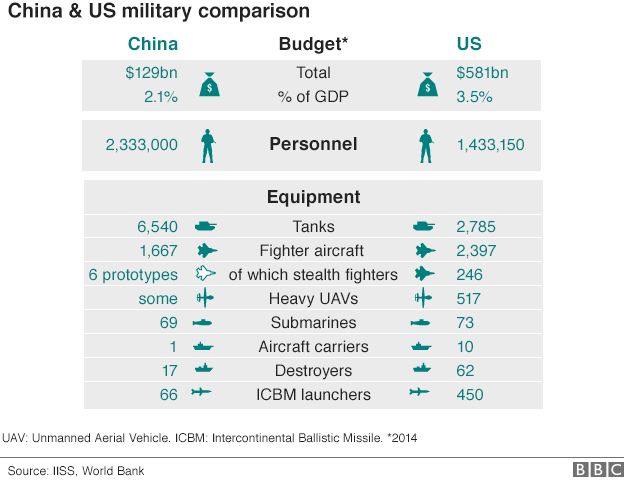
Alexander Neill from the International Institute for Strategic Studies (IISS) in Singapore, says the move shows China's "determination to have a modern fighting force".
China's People's Liberation Army (PLA) is the world's largest military, with 2.3 million members. China also has the second biggest defence budget after the US.
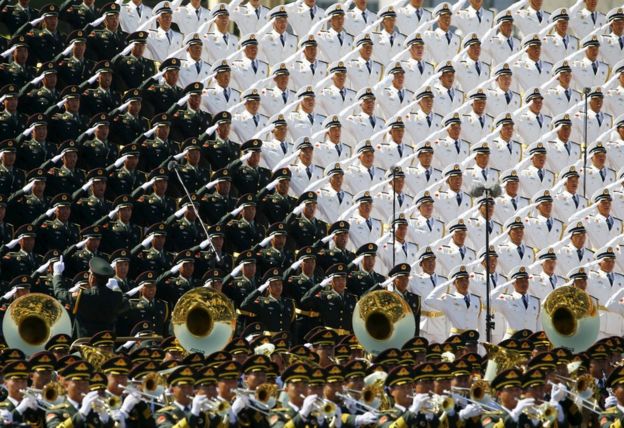 Reuters
Reuters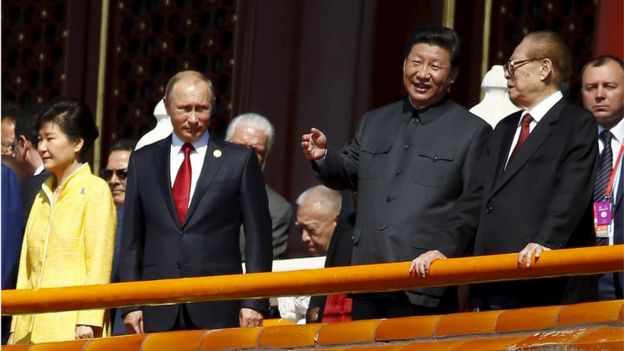 Reuters
Reuters
Celia Hatton, BBC News, Beijing: For sale - submarines, fighter jets, drones
China's victory parade is designed to be a grandiose demonstration of the country's military prowess. But it's also a useful opportunity for the Chinese military to showcase its wares.
A few months ago, China surpassed Germany to become the world's third largest arms supplier, according to the Stockholm Peace Institute.
Arms sales from China have soared 150% in the past five years. For the first time, all of the armaments shown during the parade will be Chinese-made, with no Russian-made weapons on display.
In April, the Chinese signed a deal to supply eight new submarines to Pakistan - the most expensive arms deal in Chinese history. There is also a possible deal in the works to sell Chinese submarines to Thailand.
The parade is not quite the same as an arms fair, but representatives from China's closest military allies will be on hand as China's latest weaponry streams past them.
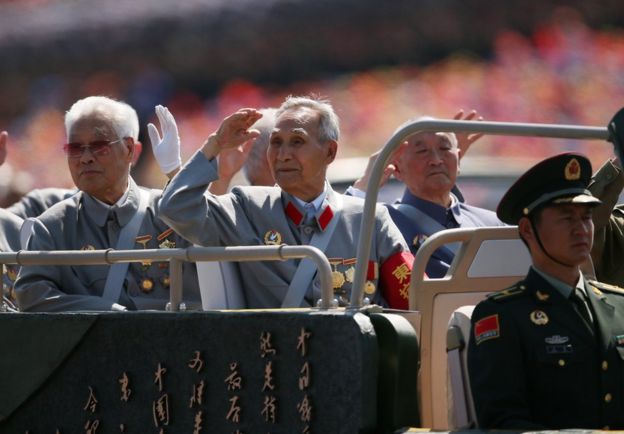 EPA
EPA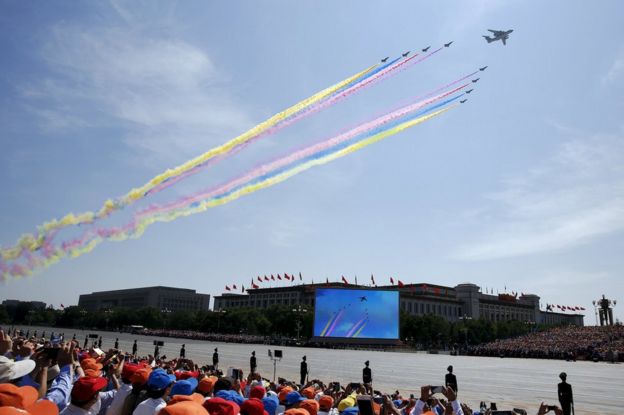 Reuters
Reuters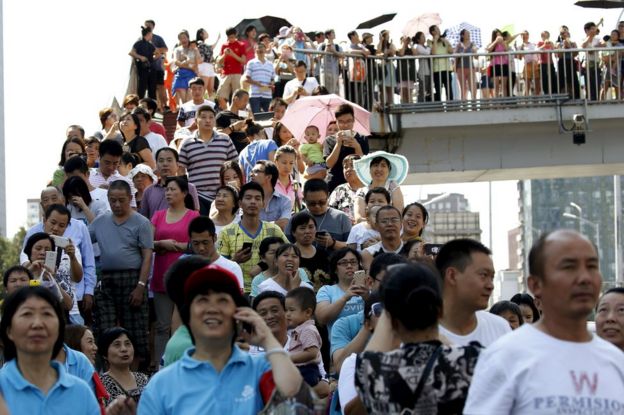 Reuters
Reuters
In the build-up to the event, state media have published commentaries reinforcing Chinese patriotism and views on historical events.
Entertainment shows were also suspended on television to make way for the coverage.
Beijing's normally smoggy skies were unusually blue, after factories were closed, barbecues banned and cars stopped from travelling to reduce pollution.
Concerns about China's growing military assertiveness and the tone of the parade meant many Western and Asian leaders stayed away from the event.
"During a period of strained relations between China and Japan, as well as increasing military tension in the Asia-Pacific region, some leaders are reluctant to be associated with what they may view as a nationalistic, anti-Japanese mass rally," says Mr Neill.
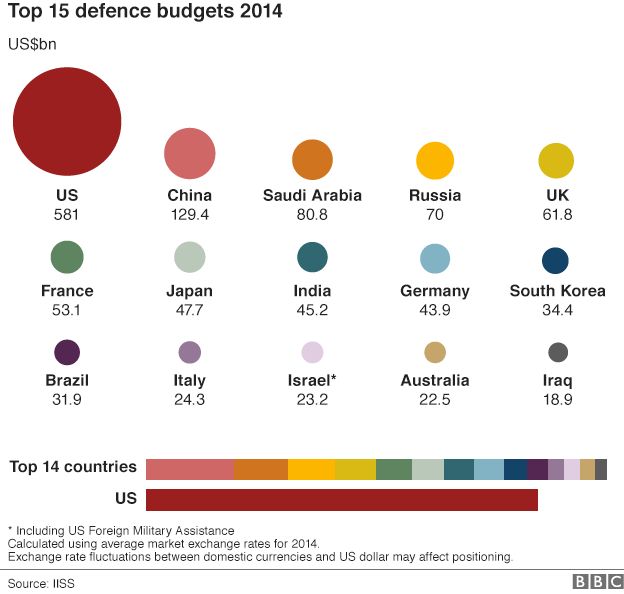
Japan launched a full-scale invasion of China in 1937 and, according to Beijing, eight years of fighting claimed 14 million Chinese lives.
China also claims that it is the "forgotten ally" and that its role in defeating Japan has been underplayed in the post-war narrative.
Nationalist forces led the fight against Japan in China. They were defeated by Mao Zedong's Communists who proclaimed a people's republic in 1949.

ไม่มีความคิดเห็น:
แสดงความคิดเห็น